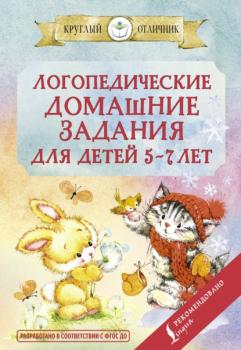Группа авторов
Список книг автора Группа авторовStilwechsel und ihre Funktionen in Textsorten der Fach- und Wissenschaftskommunikation
Der Band widmet sich der Funktionenvielfalt von Stilwechseln in Textsorten und Kommunikationsformen der schriftlichen Fach- bzw. Wissenschaftskommunikation zwischen Experten, zwischen Experten und Semiexperten sowie zwischen Experten und Laien. In ihren korpusbasierten Untersuchungen beleuchten die Autorinnen und Autoren das Thema von verschiedenen Seiten: Stilwechsel wird aufgefasst als stilistischer Sinntyp, als Normverletzung oder als Ergebnis von Medienwechsel. Behandelt werden Textsorten und öffentliche Kommunikationsformen aus unterschiedlichen fachlichen Kommunikationsbereichen, in erster Linie in synchroner Sicht. Die Vielfalt der Untersuchungsansätze führt zu einem Erkenntnisgewinn, der weit über die Beschreibung einzelner Textsorten der Fach- und Wissenschaftskommunikation hinausreicht und Schlussfolgerungen über wissenschaftliche Handlungsfelder, wissenschaftliche Erkenntnisgewinnung und Denkstile erlaubt.
Османский реестр земельных владений Южного Крыма 1680-х годов. Выпуск второй: факсимильное воспроизведение рукописи
Издание содержит первую публикацию важнейшего первоисточника по истории Северного Причерноморья 2-й пол. XVII в. – обширного реестра землевладений Лива-и Кефе – территории в Крыму, принадлежавшей Османской империи. Этот уникальный документ позволяет осветить разные стороны истории крымских поселений, находившихся под османским управлением с 1475 по 1771 гг. Записи реестра дают обширный материал для исследования системы личных имен народов, населявших полуостров, топонимики, землепользования, этнической истории. Для медиевистов, востоковедов, археологов и краеведов, широкого круга преподавателей и студентов гуманитарных факультетов высших учебных заведений, для всех интересующихся историей Причерноморья.
Османский реестр земельных владений Южного Крыма 1680-х годов. Выпуск первый: транслитерация
Издание содержит первую публикацию важнейшего первоисточника по истории Северного Причерноморья 2-й пол. XVII в. – обширного реестра землевладений Лива-и Кефе – территории в Крыму принадлежавшей Османской империи. Этот уникальный документ позволяет осветить разные стороны истории крымских поселений, находившихся под османским управлением с 1475 по 1771 гг. Записи реестра дают обширный материал для исследования системы личных имен народов, населявших полуостров, топонимики, землепользования, этнической истории. Для медиевистов, востоковедов, археологов и краеведов, широкого круга преподавателей и студентов гуманитарных факультетов высших учебных заведений, для всех интересующихся историей Причерноморья.
Фольклор Верейского уезда Московской губернии в записях Е. Е. Замысловского. 1861–1862 гг.
В сборник документов вошли записи русского фольклора историка Е. Е. Замысловского (1841–1896), сделанные им в селе Литвинове) Верейского уезда Московской губернии в 1861 и 1862 годах. Публикуются материалы о биографии собирателя, документы, устанавливающие авторство записей. Книга будет интересна всем, кто интересуется традиционной русской народной культурой, историкам пауки, москвоведам, студентам гуманитарных учебных заведений.
Логопедические домашние задания для детей 5-7 лет
С помощью данного издания ребенок сможет не только обогатить свой словарный запас и улучшить навык связной речи, но и натренировать память и мышление. Задания построены так, что родители могут с легкостью объяснить их ребенку и заниматься с ним самостоятельно, не утруждая себя поиском интересных заданий или подбором картинок. Задания по тексту представляются в игровой форме по основным лексическим темам и сопровождаются красочными картинками и яркими иллюстрациями. Данное пособие хорошо подойдет родителям для занятий по развитию речи с детьми.
Святое Богоявление (Крещение Господне). Антология святоотеческих проповедей
Антология святоотеческих творений на праздник Богоявления (Крещения Господня) включает произведения разных традиций и эпох, византийских, латинских и русских авторов – от святителя Василия Великого до святителя Луки Крымского. Издание предваряет вводная статья П.Ю. Малкова, призванная в ясной и доступной форме познакомить читателя с важнейшими богословскими и нравственными особенностями святоотеческого учения о духовном и нравственном значении церковного праздника. В формате PDF A4 сохранен издательский макет книги.
Федеральный закон «О национальной платежной системе». Текст с изменениями на 2021 год
Настоящее издание содержит текст Федерального закона от 27.06.2011 № 161-ФЗ «О национальной платежной системе» с изменениями и дополнениями на 2021 год.
Английский язык. Трекер привычек: выучи 100 правил за 30 дней
Эта книга докажет вам, что за 30 дней можно сформировать полезную и важную привычку – учить каждый день английский язык! Это пособие – настоящий тренажер для вашего мозга. В книге есть специальный трекер привычек – это таблица, в которой вы ежедневно будете отмечать запоминание и повторение правил, слов и выражений. В книгу вошли основные темы, необходимые на начальном этапе изучения языка. Здесь описаны способы эффективного запоминания правил и новой лексики. Трекер привычек дополнен планером занятий и чек-листами для самопроверки.
Liebe Erde
Was haben Louisa Dellert, Renate Künast, Dr. Eckart v. Hirschhausen, Sven Plöger und Marie Nasemann gemeinsam? Sie teilen – so wie wir alle – ein Zuhause, unsere Erde. Und sie alle haben einen ausschlaggebenden Moment erlebt, der ihnen gezeigt hat, wie wichtig es ist, sich für Klimaschutz und den Erhalt unserer Lebensgrundlagen einzusetzen. In diesem Buch erzählen sie in witzigen, berührenden, verzweifelten, wütenden und liebevollen Beiträgen, welches Erlebnis sie persönlich bewegt hat, aktiv zu werden, warum der Einsatz sich lohnt und wie sich ihr Leben dadurch veränderte. Sie alle fordern dazu auf, die Zukunft gemeinsam zu gestalten. Und zeigen: Wir können viel verändern.









